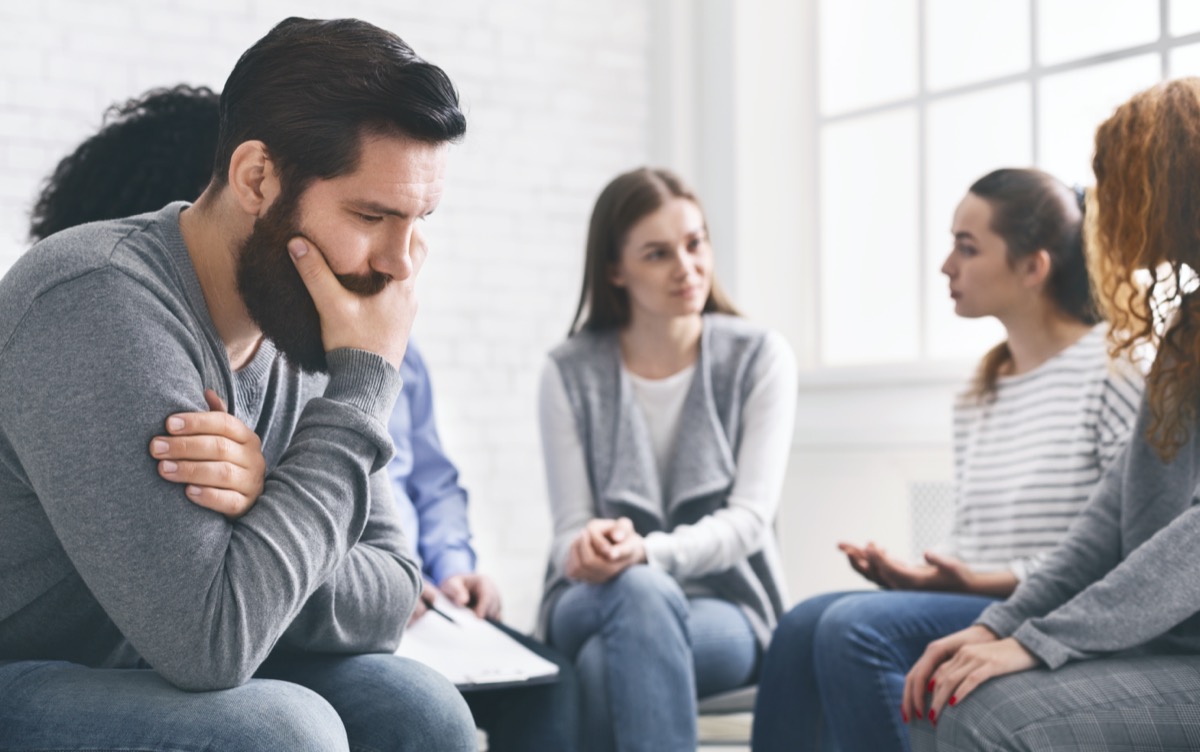You’re Not as Awkward at This One Thing as You Think, Research Shows

People have a habit of overthinking their actions in various scenarios every day. Maybe it was what you were wearing, the way you were walking, or even the things that you said. Fortunately, it turns out you may be giving yourself more of a hard time than you actually deserve—at least in certain situations. According to research, you’re actually not as awkward in casual conversation as you think. Read on to find out the science behind your concerns, and if you’re still worried, study these Things You Should Never Do During a Conversation.
A 2018 study published in the journal Psychological Science found that casual conversations often leave people feeling anxious and uncertain. Out of 20 everyday activities, people typically rank their ability to have a conversation at the bottom, while ranking others as being better than them when it comes to chatting.
“We not only find that people report feeling under confident in their ability to engage in casual conversations; they also tend to attribute the worst moments of the conversations—awkward pauses, conversational missteps—to themselves as opposed to their conversation partner,” Erica Boothby, PhD, a former postdoctoral research associate at Cornell University and one of the researchers, said when presenting the study at the Society for Personality and Social Psychology’s 20th Annual Convention.
But just like you’re worried about your awkwardness in a conversation and not about the other person, the same goes for someone who is talking to you. Boothby said people are often very forgiving in conversations and too busy focusing on their own actions and words to worry about whether or not you are being awkward.

At the end of the day, the feeling that you are more awkward in conversations than you actually are comes back to insecurities within onself. According to Jason Wilkinson, a therapist and owner of a private mental health practice in Oregon, people are “over concerned and preoccupied with how they appear to others,” and this is what leads them to overthink casual conversations.
“Overthinking conversations often has something to do with self-confidence,” Wilkinson explains. “We deny or doubt our own competence, while elevating the competence of those we are around.”
RELATED: For more up-to-date information, sign up for our daily newsletter.
Working on your confidence with a therapist can be one way to counteract this tendency to overthink, Wilkinson says. However, it’s not an overnight fix—just like any behavioral change. Fortunately, Carol Barkes, a conflict resolution expert and co-author of Success Breakthroughs, says there are some things you can practice in everyday conversations to help you feel less awkward during and after.
“People spend too much time thinking about themselves versus being present in the conversation. Conversations flow much better when one tries to cease thinking of what to say or how they will be perceived, and instead, focus on really hearing the other person,” Barkes explains. “We tend to listen with a response in mind. We will be less anxious if we wait to truly hear the other person and formulate the next right thing to say based on what they said.”
You should also practice slowing down when you speak in conversations, Barkes says. After all, when you get anxious, you tend to talk faster which can make it “harder for the other person to hear you and for your brain to effectively formulate how to manage the conversation.” This can lead you to trip up in conversation or not say what you wanted to say, which makes you view the conversation as more awkward in retrospect. And if you want to keep the conversation flowing, make sure you avoid This One Question That Can Kill a Conversation, Experts Say.